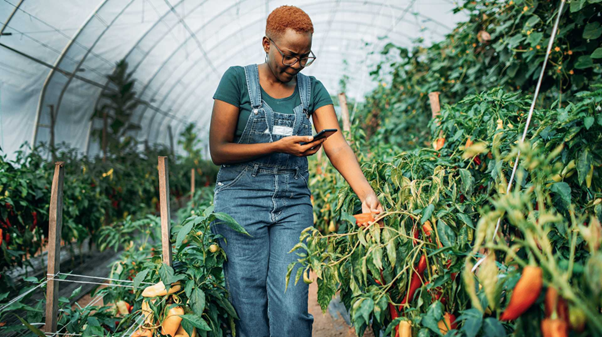
@Airtel Africa
"Our goal is to transform lives across the continent. We look forward to working with governments and other stakeholders to bridge the digital and financial divide. Digitization has immense potential to create economic opportunities on the continent," said Dr. Lazarus McCarthy Chakwera, CEO of Airtel Africa, one of the leading providers of telecommunications and mobile money services present in 14 African countries with now 150 million customers on the continent, confirming Airtel Africa's commitment to continue promoting the continent's digitization to unlock new opportunities and promote inclusive and sustainable growth.
As a major player in the pan-African technological ecosystem, Airtel, like other telecom operators present on the continent, plays a significant role in expanding digital infrastructure and access to the Internet across the continent, thereby contributing to the region's economic and social development.
"Meeting the changing needs of African consumers and businesses"
In partnership with governments, businesses, and civil society organizations, Airtel Africa is committed to providing high-quality and affordable telecommunications services, thereby contributing to reducing the digital divide and enabling African populations to access the Internet and essential digital services. The group is working to expand connectivity in rural and remote areas, where Internet access can have a transformative impact on education, health, and economic development.
Furthermore, Airtel Africa invests in technological innovation to meet the changing needs of African consumers and businesses. The company develops innovative digital solutions in areas such as mobile financial services, e-commerce, and remote healthcare, thereby improving the daily lives of Africans and driving the continent's digital economy.
In this regard, Airtel Africa has started the construction of its first data center in Lagos, Nigeria. Nxtra by Airtel aims to establish one of Africa's largest networks of data centers, strategically located in Airtel Africa's key cities of influence, complementing existing edge sites. This initiative underscores the company's commitment to meeting the growing data management needs in Africa, ensuring reliable and sustainable data center capacity to support the continent's rapidly expanding digital economy. "We firmly believe that the creation of Nxtra data centers will enhance sovereignty, security, and data preservation on the continent, reflecting our commitment to making Nigeria a major hub for access to digital services as we propel Africa into a sustainable and inclusive digital era," said Segun Ogunsanya.
The Nxtra by Airtel data center in Lagos is expected to provide a total power capacity of 38 megawatts, with high-density racks and cutting-edge construction practices to achieve optimal energy efficiency. Scheduled to be operational by the first quarter of 2026, this facility marks the first of five hyperscale data centers developed by Airtel Africa on the continent, with a combined capacity of 180 megawatts spread across multiple data centers.
Similarly, AIRTEL Africa has launched what it considers to be cutting-edge fiber optic bandwidth service, leveraging terrestrial fiber assets and undersea cable systems to meet the growing demand for wholesale data in Africa. Airtel Africa Telesonic Limited, the new service, is committed to offering comprehensive terrestrial fiber and undersea cable solutions. The initiative is expected to have a long-term positive impact across Africa by improving the quality of life for communities and stimulating national economies.
Airtel has also invested in the 2Africa submarine cable system, which is set to become the most comprehensive submarine cable in the continent and the Middle East region. This ambitious project aims to provide customers with seamless connectivity between Africa and Europe.
A Telecom G6 to accelerate digital inclusion
Like Airtel, telecom operators play a crucial role in Africa's digitalization by providing the necessary infrastructure to connect people and businesses to digital services. For example, mobile payment services offered by operators such as MTN in Rwanda and Safaricom in Kenya facilitate financial transactions in regions where traditional banking services are limited, thereby contributing to financial inclusion and economic growth. By investing in connectivity and technological innovation, African telecom operators are key players in the continent's digital transformation.
In this context, under the auspices of the GSMA, gathered in Kigali on October 17 for the MWC, the six leading telecom operators in Africa - Airtel Africa, Axian Telecom, Ethio Telecom, MTN, Orange, and Vodacom - signed an agreement to align their strategies and work more closely with governments to promote digital inclusion and develop mobile infrastructure across the continent. By committing to global and continental goals, such as the United Nations Sustainable Development Goals (SDGs), Agenda 2063, and Smart Africa's vision to create a single digital market by 2030, CEOs estimated, in a joint statement, that a truly connected and dynamic Africa, made possible by the power of inclusive mobile connectivity, is within our collective reach – but to make it a reality and bridge connectivity and usage gaps for good, deep political support will be needed within existing and new partnerships. One of the main dependencies is the need to create conducive conditions for investments in digital infrastructure across Africa.
More than $70 billion in mobile infrastructure construction
Mobile technologies and services are key elements of this vision. And tangible progress has been made. Over the first 10 years of Agenda 2063 (2013-2023), mobile operators in Africa have invested more than $70 billion in mobile infrastructure construction, enabling nearly 85% of Africa's population to access high-speed mobile connectivity (compared to a global average of 95%). However, more than 680 million people, or three in five (60%), live in areas covered by high-speed mobile networks in Africa but are not subscribers to high-speed mobile services.
Sub-Saharan African mobile operators invest between $6 and $8 billion annually in capital expenditures, or nearly 20% of their revenue, but significant additional investments are needed to achieve ambitious goals of connecting everyone to the Internet and digitally transforming Africa.
CEOs today declared their commitment to work with the transformation plans of African nation-states, with a greater emphasis on four priority areas in which governments, working in partnership with the mobile sector, have the opportunity to promote digital inclusion, economic growth, and environmental transformation.
According to data from the Global Association of Operators and Telecommunications Equipment Manufacturers (GSMA), Sub-Saharan Africa had 489 million unique mobile subscribers in 2022 for a penetration rate of only 43%. The number of Internet service users was 287 million, or 25% of the region's population
As catalysts for digital transformation, these companies are well positioned to support economic growth, technological innovation, and social development across the African continent.




